Many separate the atonement from Pentecost to the degree that the link between them is lost. I wish to explore that link. The link is based on the insight that the cross of Christ is not limited to Israel. Rather, Christ seeks at the cross to open his life to all peoples, redeeming persons “from every tribe, and language, and people, and nation” (Rev. 5:9) and breaking down the wall of hostility between them (Eph. 2:14-16). The Spirit is poured out on all peoples at Pentecost in loyalty to the cross and for the sake of the crucified and risen Christ.
This paper will look at the challenges ahead for the Church in China and provide a general orientation of Xi Jinping’s governance, particularly those elements with direct bearing on the present state of the Church. It will follow by highlighting several issues which would perceive as major challenges facing the Church in China in the coming decade: Ecclesial manifestation and internalization of faith, Christian Unity, Sinicization: Christianity in China or Chinese Christianity, and lastly Missiology, Diasporas and nationalistic sentiment.
The study begins with the challenge of the charismatic leadership model in explaining Pentecostal leadership, and the Spirit-empowered leadership model is proposed as an alternative. As the first step, the study explores four essential characteristics of the Spirit-empowered leaders from the Old Testament. This biblical examination also takes two Pentecostal leadership studies to bring the contemporary issues of Pentecostal leadership.
The purpose of this presentation is to explore the work of the Holy Spirit outside the church, particularly among other religions, and Pentecostals’ struggle to exercise the gift and capacity of discerning the Spirit of God and the spirit(s) therein. As a framework for the investigation, there is a comprehensive and multilayered account of the work of the Spirit of God in the world that God has created. The Holy Spirit is active and present not only in the Church, personal salvation, and charismatic empowerment, but also in creation and the workings of the world, society, and culture (politics, economy, arts, friendship, etc.), the spiritual powers and beings (such as angels and demons), as well as other religions and their visions of the “spirit(s).” Without succumbing to theological pluralism and universalism or weakening in evangelistic and holistic missional fervour, I challenge Pentecostals to reconsider their somewhat limited and restricted vision of the sovereign work of the Divine Spirit. If there is one place where such careful, Spirit-guided openness is urgently needed, it is across Asia. “The wind blows where it wills” (John 3:8, RSV).
Leadership is a complex phenomenon that cannot be easily defined as a single concept. Still, it is often understood as a set of social processes that influence people towards common goals—an approach that I will follow in this study. Drawing from general leadership theory and research on Pentecostal leadership, I will emphasise the interaction between leaders, followers, and the spiritual dimension, leading to a constructivist perspective on leader-follower relationships. The article will first address leadership in various settings, emphasising the need to contextualise leadership in different cultures, but also keeping an analytical distance to avoid dominating discourses that break with Christian perspectives. Second, I will discuss the complexity in Pentecostal leadership, especially the collaboration between divine and human interventions, the dialectic connection between agency and structure, and the ambivalence and tension between leaders and followers in ecclesial settings. Finally, I will highlight the constructive relations between leaders and followers. While leaders hold a formal position, leadership is also a social phenomenon effective only if it makes sense to church members, implying that the leader’s task is not to create everything from scratch but to build relationships and draw from the resources and spirituality present within the congregation.
Having been involved in various ecumenical dialogues over the past three decades, I have gained some important insights. Much progress has been made, yet the question remains: How can we, despite our diverse histories and identities, live and function as the Church together? Secularising tendencies in our societies that bring about new challenges, especially in the large urban centres. For the sake of a credible Christian witness, we need to be able to address common concerns together. There are fundamental spiritual desires that are not met in a secular context. The Christian churches have the opportunity to respond to these human yearnings, to a void that is felt, and present the Good News of Jesus Christ in relevant ways. Furthermore, as we live in increasingly pluralistic societies, we witness a growing polarisation of attitudes. This is evident in one-sided nationalist agendas and a discourse rooted in fear. The ecumenical work done so far can serve as a bridge for a common Christian witness “so that the world may believe.”
This presentation discusses the event of Pentecost as the future of humanity and the rest of creation. It upholds a vision of Pentecost’s cosmic reach, stretching from the very act of creation to the eschaton. The presentation asserts that everything in creation—every speck of dust, every particle of matter, including the human body in all its intricate complexity—is created to be joined to the Spirit; in other words, created for Pentecost. In light of this assertion, the presentation will spotlight human ontology, affirming that from the beginning, humanity is created as a charismatic creature in the image and for the likeness of its prototype and telos—Christ, the Spirit-bearer. In continuity with this understanding, the presentation will proceed with a reflection on the Church, the Spirit-bearing communal body of Christ, as an ongoing Pentecost. As such, the Church embodies the eschatological destiny of all creation in which Christ is “all in all.” This is an eschatological glimpse of the Church circumscribing the cosmos as one grand, charismatic, ecclesial macro-anthropos, covering the earth with the worship of God.
Pentecostal communities believe in the power of the Holy Spirit in a healthy and empowering way. However, beliefs about the power and influence of demons—especially over Christians—often lead to unhealthy practices within deliverance and exorcism ministries. This paper examines selected worldviews underlying these beliefs, which distort the biblical trust in the love and sovereign care of God for his own people. These observations examine Platonist dualism and the warfare worldview, which have become prevalent among Pentecostals and Charismatics, alongside the hermeneutical analysis of Michael Heiser’s Divine Council perspective. Within these worldviews, there are systems that do not rest on a biblical foundation. For example, the spiritual legal system that underlies interpretations of curses and demonic presence is based on a hermeneutical methodology which prioritises human experience over biblical authority. The aim of this paper is to establish sound principles for both theological and exegetical hermeneutics.
The Christian faith is formed around Jesus. That is obvious when reading the Apostles’ Creed where the second article is significantly longer than the others. Faith in the Pentecostal tradition is even more Christ-centric with the formulations around the full gospel as an example. Jesus is the centre of the theological understanding. Pentecostalism gives attention to the Spirit, as doctrine, sign, and experience, but when we peel the onion, layer by layer, we find Jesus everywhere and in every layer—of course, as the foundation of statements, but also as a lived example and the core of experience. His transformational presence is unique but can also function as a theological paradigm for Christian life in this world. The aim of this paper is to investigate how Christian presence and engagement in society can be understood as incarnational and transformative. Pentecostalism is, in many ways, a practical and concrete type of religion. Some scholars have described it as entrepreneurial, active, or practical. For Pentecostals, faith is not merely an idea but a lived experience. In this sense, it is faith taking concrete form, or in other words, incarnational. Moreover, Pentecostals are eager to see radical change. Salvation, for them, means becoming a new creation; Spirit baptism fills believers with new power and possibility; the Church is the redeemed alternative community. The whole spirituality is about change, development, or transformation. The main question is: How can Pentecostal social engagement be understood as incarnational transformation?
This presentation raises the question of the continuity of the Church with the life of Jesus, that is, what the Scriptures call the scandal of Christ. The use of the term “scandal” is derived from the Greek skandalon as used in the New Testament. In its ancient usage, the root of the term identifies the “means whereby one closes something” and refers to the mechanism sealing a trap to which the bait is mounted. The trigger is the stick or the stone preventing the trap from closing, but once removed, along with the bait, the victim is caught and unable to escape. A typical use of this image in the New Testament is to translate skandalon as “stumbling block,” a metaphor which is applied repeatedly to Jesus and to the gospel. The story of Jesus exhibits a striking pattern of division, culminating in the public scandal of his criminal trial and crucifixion. In turn, this scandal that forms the core of the Christian gospel is itself portrayed as a “stumbling block” to Jesus’ followers, Jews and Gentiles alike. However, very few studies have examined the meaning of this scandal, identified how it works or explored its consequences for the life of the Christian community today. This presentation examines how exactly the scandal of Christ continues to function in the life of the apostolic community and, by extension, in the Church today. It proceeds in four steps: (1) an explanation of the scandal found in the gospel of Christ, (2) the identification of the mechanism of the scandal, (3) an exposition of how this mechanism continues in the church at Pentecost, and (4) a discussion of the way the Church today can endorse this scandal and how this task reflects the challenges the churches face in today’s world.
The Church is the spiritual community of the seeing ones. It has been called “out of darkness into his (God’s) wonderful light” (1 Pet. 2:9). This community consists of “children of the light and children of the day” who “do not belong to the night or to the darkness” (1 Thess. 5:5) but have the obligation to “live as children of light” (Eph. 5:8). The one who provides this environment of light, enabling the church to see, is the person and work of the Holy Spirit. In contrast with the previous state of blindness, the Spirit guides, speaks, teaches all things, reminds what was said, and reveals what is yet to come (John 14, 15, 16). Therefore, the scriptural contrast between darkness and light is not simply implying the transition from the state of unbelief to the state of belief. Instead, this enlarged perspective rather reveals the effect of a Spirit-led sight empowerment. This ability to walk with insight and discernment could be defined as pneumatological quality. Scripturally and in practice, we find this truth especially important for times when this “light-and-day” defined community goes through adversity and persecution. Ecclesiological seeing is possible through a pneumatological mindset. From its conception until modern times, this mindset has helped the church not only to survive afflictions but thrive spiritually. This is how the three painful effects of persecution—“the split consciousness,” “the split faithfulness,” and “the split leadership”—have been and will be overcome.
In recent years Global Christianity has seen its greatest growth in the Majority World where the highest concentration of the one billion multi-dimensionally poor children live. Poverty is the greatest commonality among children who are at risk of not fulfilling their God given potential. This presentation will take a look at how spirit empowerment can be transformational for the development of children at risk by providing a pathway to agency or the capacity to make decisions about one’s future and carry them out. We will hear the children’s voices telling of how the Spirit empowers them to change the trajectory of their lives, achieve their potential, and fulfill God’s purpose.
In the contemporary global Christianity, there are diverse opinions on whether a revival of the dynamic work of the Holy Spirit can happen once again. Regarding this matter, this study aims to illuminate the pivotal role of prayer in sustaining the effectiveness of global Christianity, with cognizance that the recovery and revival of individual and communal spirituality after the COVID-19 pandemic depend on prayer. When we examine the Bible and church history, we come to realize that prayer has consistently served as a foundation for the revival of the global church beyond regional and temporal boundaries. Particularly, the Pentecostal Movement that spreads at the beginning of the 20th century from Topeka to worldwide, had a strong foundation of prayer. The world’s largest church, Yoido Full Gospel Church, also initiated a Pentecostal movement centered on prayer, leading to remarkable revival. Regardless of ages and countries, prayer is a characteristic of revival happening in the global church, and it will undoubtedly continue to be the key to future Christian revival.
The history of the Jesus Movement is a story of ongoing encounter with pre-existent religious traditions as it spread over time across various geographical regions and people groups across the globe. Life in the twenty-first century is marked by multiculturalism and religious plurality, and as various religions passionately assert the supremacy of their own truth claims, it heightens the potential for communal conflict. Sharing Jesus in a way that affirms his absolute and universal lordship and yet shows sensitivity and respect for people of other faiths is thus today a burning existential concern. Pentecostals are uniquely endowed with the spiritual resources to respond effectively to this need to clarify and amplify the ‘Voice’ of Truth, God’s Word in Christ, amidst the confusing cacophony of religious sounds in our world today.
In recent years Global Christianity has seen its greatest growth in the Majority World where the highest concentration of the one billion multi-dimensionally poor children live. Poverty is the greatest commonality among children who are at risk of not fulfilling their God given potential. This presentation will take a look at how spirit empowerment can be transformational for the development of children at risk by providing a pathway to agency or the capacity to make decisions about one’s future and carry them out. We will hear the children’s voices telling of how the Spirit empowers them to change the trajectory of their lives, achieve their potential, and fulfill God’s purpose.
In the contemporary global Christianity, there are diverse opinions on whether a revival of the dynamic work of the Holy Spirit can happen once again. Regarding this matter, this study aims to illuminate the pivotal role of prayer in sustaining the effectiveness of global Christianity, with cognizance that the recovery and revival of individual and communal spirituality after the COVID-19 pandemic depend on prayer. When we examine the Bible and church history, we come to realize that prayer has consistently served as a foundation for the revival of the global church beyond regional and temporal boundaries. Particularly, the Pentecostal Movement that spreads at the beginning of the 20th century from Topeka to worldwide, had a strong foundation of prayer. The world’s largest church, Yoido Full Gospel Church, also initiated a Pentecostal movement centered on prayer, leading to remarkable revival. Regardless of ages and countries, prayer is a characteristic of revival happening in the global church, and it will undoubtedly continue to be the key to future Christian revival.
The history of the Jesus Movement is a story of ongoing encounter with pre-existent religious traditions as it spread over time across various geographical regions and people groups across the globe. Life in the twenty-first century is marked by multiculturalism and religious plurality, and as various religions passionately assert the supremacy of their own truth claims, it heightens the potential for communal conflict. Sharing Jesus in a way that affirms his absolute and universal lordship and yet shows sensitivity and respect for people of other faiths is thus today a burning existential concern. Pentecostals are uniquely endowed with the spiritual resources to respond effectively to this need to clarify and amplify the ‘Voice’ of Truth, God’s Word in Christ, amidst the confusing cacophony of religious sounds in our world today.
In recent years Global Christianity has seen its greatest growth in the Majority World where the highest concentration of the one billion multi-dimensionally poor children live. Poverty is the greatest commonality among children who are at risk of not fulfilling their God given potential. This presentation will take a look at how spirit empowerment can be transformational for the development of children at risk by providing a pathway to agency or the capacity to make decisions about one’s future and carry them out. We will hear the children’s voices telling of how the Spirit empowers them to change the trajectory of their lives, achieve their potential, and fulfill God’s purpose.
© 2025 City Harvest Church. All Rights Reserved.
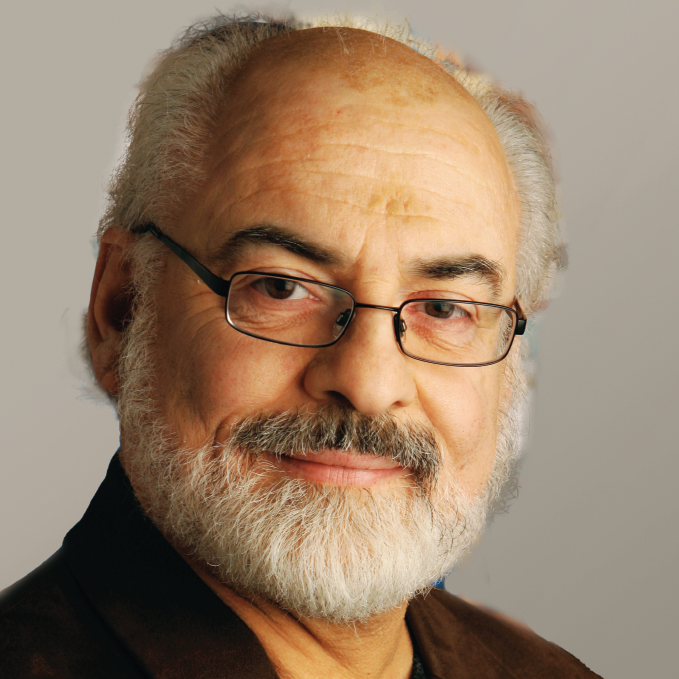
Professor of Christian Theology,
Vanguard University
(USA)
Frank Macchia is the associate director of the Centre for Pentecostal and Charismatic Studies at Bangor University in Wales, and he is also a professor of Christian Theology at Vanguard University in California. He holds an MDiv from Union Theological Seminary at Columbia University in New York and DTh from the University of Basel in Switzerland. He received his doctorate with distinction and won the Jacob Burckhardt Prize for his dissertation on the message of the Blumhardts.
Prof Frank was formerly the president of the Society for Pentecostal Studies (SPS) and the editor of its Pneuma journal. He received the Lifetime Achievement Award by the SPS in 2015. He was also awarded an honorary DDiv from the Pentecostal Theological Seminary in Tennessee, which is the leading seminary for the Church of God.
As an ecumenical theologian, Prof Frank engages in broad conversations, serving six years on the Faith and Order Commission of the National Council of Churches in America, as well as in other conversations, such as the Reformed and Pentecostal Dialogue. He has participated in numerous ecumenical consultations, including the World Council of Churches/Evangelical Dialogue, and the Consultation on Christian Unity held at Princeton Theological Seminary.
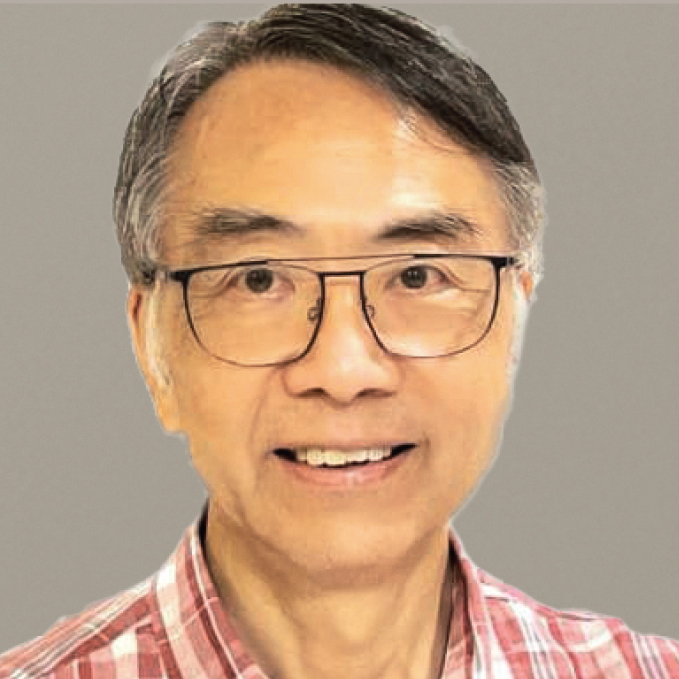
Visiting Research Fellow,
Holy Spirit Center
(HKSAR, China)
Kim-Kwong Chan is a Visiting Research Fellow at the Holy Spirit Center of the Catholic Diocese of Hong Kong. He earned a BSc in Nutrition from McGill University in Canada, MDiv from China Graduate School of Theology, MA from University of Ottawa, STL from Pontifical St Paul University, PhD from University of Ottawa, and DTh from Pontifical St Paul University. Dr Chan also undertook graduate studies on agricultural economics at the University of London and post graduate Advanced Certificate in Psychoanalytic Psychotherapy under China American Psychoanalytic Alliance.
Dr Chan is an ordained minister, and vice-chair of the Christian Nationals’ Evangelism Commission. He had served as the programme director and senior fellow of the Council for Christian Colleges and Universities in Washington, D.C., the chaplain of the Chung Chi College of the Chinese University of Hong Kong, and the executive secretary of the Hong Kong Christian Council, until his retirement in 2016. He has authored and co-authored 12 books, mostly on Christianity in China. He has also published 60+ academic papers in journals and chapters in books in English, Chinese, and French. Dr Chan is the co-editor of an Internet database* on sources of Christianity from more than 2,700 volumes of county gazetteers in China.
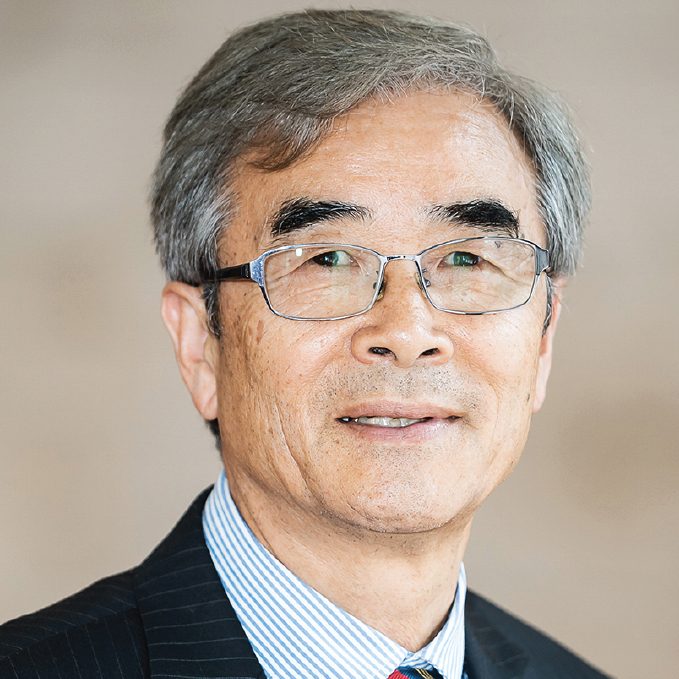
Distinguished Professor of Global Christianity,
Oral Roberts University
(South Korea)
Wonsuk Ma is the Distinguished Professor of Global Christianity and PhD program director at Oral Roberts University. His first theological study was at Full Gospel Theological College (now Hansei University), which was disrupted for two years when he had to serve as a soldier in Vietnam. His first ministry was at an Assemblies of God church located at the original place where Dr David Yonggi Cho set up his first tent church. Within this period, Dr Wonsuk ministered among youth, married his wife Julie, and received his ordination.
Dr Wonsuk was formerly a missionary educator in the Philippines, where he launched the Asian Journal of Pentecostal Studies in 1998 and the Journal of Asian Mission in 1999. He also served as the executive director and David Yonggi Cho Research Tutor of Global Christianity at the Oxford Centre for Mission Studies. During this time, he led the publication of the 35-volume Regnum Edinburgh Centenary Series (2010). He has participated in various international mission and ecumenical functions, including the Reformed and Pentecostal Dialogue, Edinburgh 2010, the Lausanne Movement, and various ecumenical conferences including the World Council of Churches and the Global Christian Forum.
His research interests include Old Testament theology, the prophets, the Spirit of God in the Old Testament, contextual theology, Asian Pentecostalism, Pentecostal mission, and global Christianity. Dr Wonsuk has authored and edited 13 books, in addition to numerous scholarly writings. His desire is to bring together the theological richness of the Old Testament, local theologies of Pentecostalism (as experienced in Asia), the bigger global picture of the Spirit’s work in present time, and God’s unchanging mission in human history.
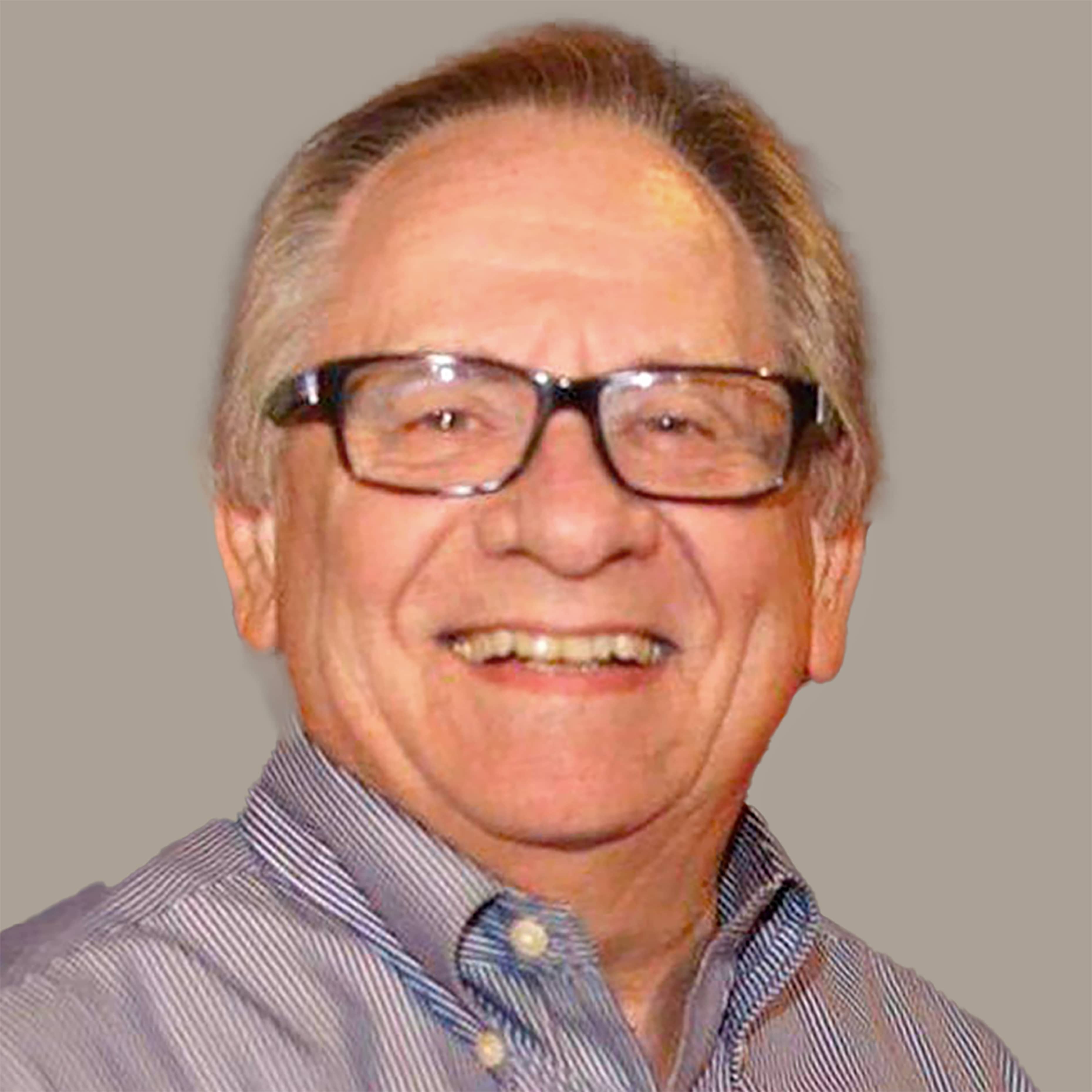
Margaret S. Smith Distinguished Professor of World Missions and Intercultural Studies, Vanguard University
(USA)
Douglas Petersen is the Margaret S. Smith Distinguished Professor of world missions and intercultural studies at Vanguard University in California. He is one of the foremost ethicists and Pentecostal leaders in the world today. Prof Doug and his wife Myrna founded non-profit organisation Latin America Childcare (currently known as ChildHope) to give hope and a future to poverty-stricken children. Under his leadership, ChildHope has since expanded to 22 countries in Latin America and the Caribbean, providing education, food, and medical programmes to 100,000 children in 300 schools.
Prof Doug received his PhD from the Oxford Centre for Mission Studies. As a Pentecostal thought leader, he has written books, published many journal articles and book reviews, and given lectures and public addresses in seminaries, Bible colleges and conferences, including the World Vision Leadership Symposium.
In 2022, Prof Doug was honoured for 50 years in ministry by the SoCal Network of the Assemblies of God in San Diego. In 2016, he received the Lifetime Achievement Award by the Society for Pentecostal Studies. His book Not By Might Nor By Power: A Pentecostal Theology of Social Concern (1996) was selected as one of the Outstanding Books of 1996, as well as the Outstanding Book of the Decade (1990 to 2000). He also received Outstanding Book of the Year in 1999 for The Globalization of Pentecostalism: A Religion Made to Travel (1999).
Prof Doug’s recent teachings include theological themes in the New Testament, the Corinthian letters, organisational business ethics, current issues in mission studies, leadership and global issues, mission and culture in theological perspective, contemporary moral issues, research methodology/leadership studies, entrepreneurship, as well as conflict and change.
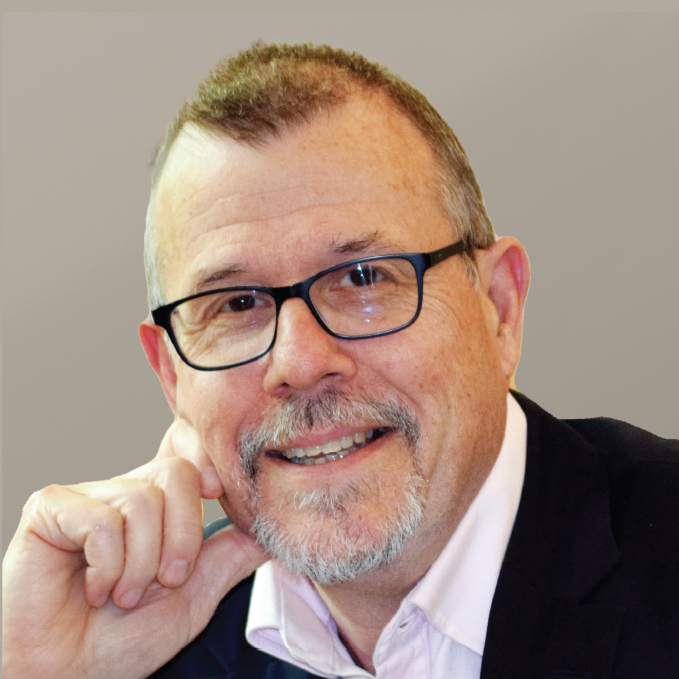
Executive Director,
Oxford Centre for Mission Studies
(UK)
Paul Bendor-Samuel is a medical doctor. He was formerly the international director of Interserve and the executive director of L’Association de Coopération en Tunisie. He also served as a primary healthcare practitioner in southern Tunisia and a medical general practitioner in South Wales. In 2000, he was conferred the Order of the British Empire (MBE).
In 2016, Dr Paul was appointed the executive director of the Oxford Centre for Mission Studies in UK. A published author, Dr Paul is passionate about contextualised discipleship, kingdom collaboration, and the renewal of cross-cultural mission. His personal values include oneness in the body of Christ, service, humility, collaboration, perseverance, and integrity.
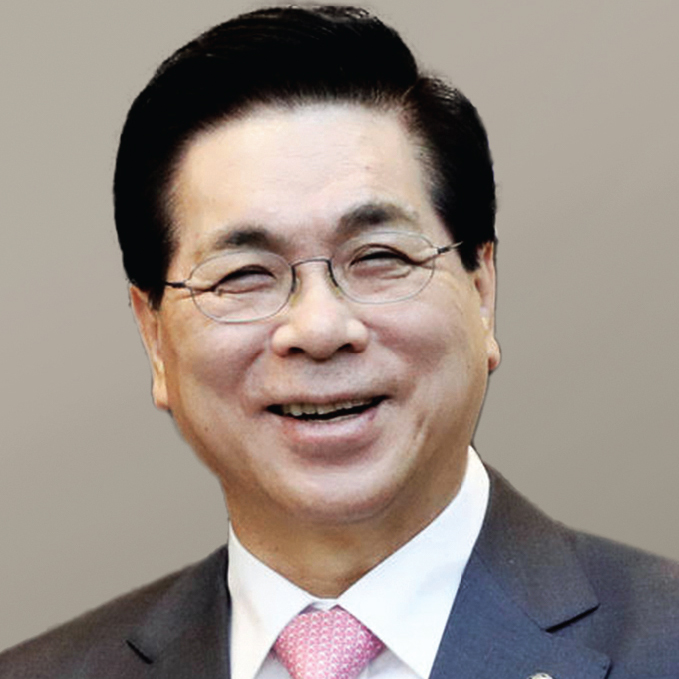
Senior Pastor,
Yoido Full Gospel Church
(South Korea)
Younghoon Lee joined the Full Gospel Central Church (now Yoido Full Gospel Church) in Seoul in April 1964. He studied theology at Yonsei University, the Full Gospel Theological Seminary (now Hansei University), and the United Graduate School of Theology at Yonsei University, graduating with a ThM. In 1977, Dr Lee began his ministry at Yoido Full Gospel Church as the editor-in-chief for Youngsan Publishers (now Seoul Logos) and was the first editor of the Full Gospel Newspaper. After his ordination in 1982, Dr Lee went to the US where he completed his ThM course work at Westminster Theological Seminary in Philadelphia and received his MA and PhD in Philosophy of Religion at Temple University. During this period of study, he served as the senior pastor of Full Gospel First Church of Washington.
He was one of the founding members of the Institute for Full Gospel Education (now International Theological Institute). As its executive director, he systematised and theologised Dr David Yonggi Cho’s pastoral principles. He has served in a number of positions over the years: senior pastor of Full Gospel Tokyo Church; professor at Hansei University; president of Bethesda Christian University in California; president of Japan Full Gospel Bible College; chairman of the Theological Committee for the National Council of Churches in Korea; committee member of Asia Pacific Theological Association; senior pastor of Full Gospel Los Angeles Church; vice-chairman of the Council of Korean Churches in Southern California; and president of the National Council of Churches in Korea. Today, Dr Lee is the senior pastor of Yoido Full Gospel Church and currently serves as the president of the United Christian Churches of Korea.
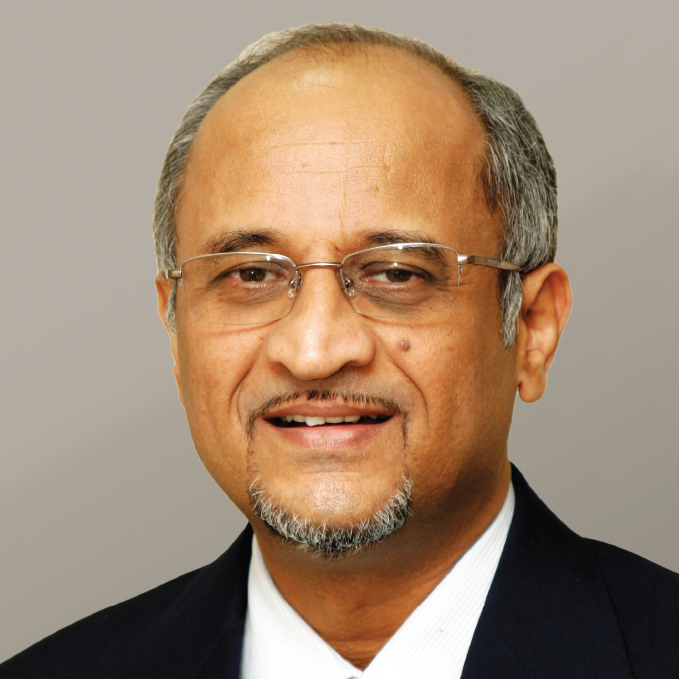
Chairman,
World Vision International
(India)
Ivan Satyavrata was a member of the World Vision India Board before being elected as chairman of World Vision International in November 2022. He was also the senior pastor of Assembly of God Church Kolkata for 16 years.
Dr Ivan holds a BTh from Southern Asia Bible College in India, BDiv from Union Biblical Seminary in India, ThM from Regent College in Canada, and PhD from the Oxford Centre for Mission Studies. He taught full-time for 21 years and served as president at the Southern Asia Bible College (now Centre for Global Leadership Development) in Bangalore. His key publications include Holy Spirit, Lord, and Life Giver (2009), God Has Not Left Himself Without Witness (2011), and Pentecostalism and the Poor (2017).
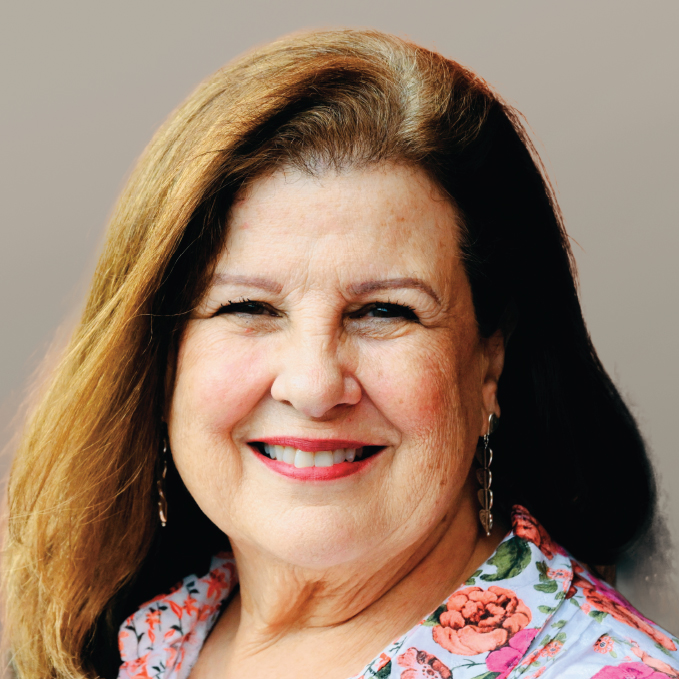
President & Executive Director,
ChildHope
(Costa Rica)
Mary Mahon is the executive director and president of ChildHope (formerly known as Latin America Childcare), a ministry that has provided life-transforming education to children for more than 50 years. Today ChildHope is found in 22 countries in Latin America and the Caribbean, providing education, food, and medical programmes to 100,000 children in 300 schools. Children are also given opportunities to know and experience the love of Jesus Christ. Dr Mary served with the Assemblies of God World Missions for almost 30 years. Throughout her extensive missionary career, she has served in both Costa Rica and Venezuela. In Venezuela, she established a ChildHope school in El Pauji, a notoriously dangerous barrio in the capital city of Caracas.
Dr Mary also founded Chicas de Promesa (Girls of Promise), an empowerment programme designed to help adolescent girls in ChildHope schools overcome the obstacles they face in their communities. She is currently developing a parallel ministry, the Chicos Project (Champions for Change) for boys who live in these same communities.
Dr Mary received her undergraduate and graduate degrees from Vanguard University in California. She also holds a PhD in intercultural education from Biola University in California. She is an ordained Assemblies of God minister with the Southern California Network and has over 30 years of cross-cultural experience as a missionary.
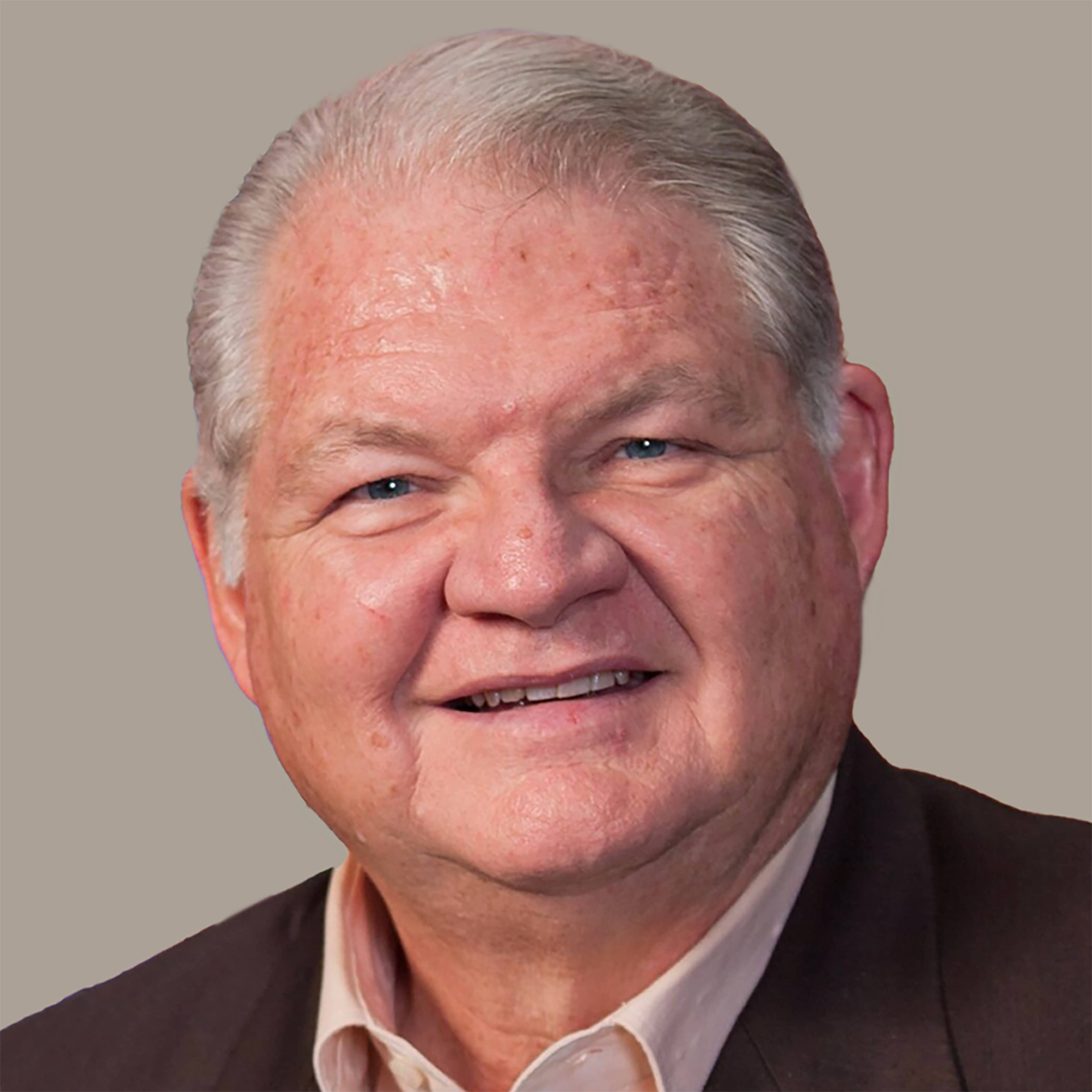
Past President,
Assemblies of God Theological Seminary
(USA)
Byron Klaus was formerly the president of the Assemblies of God Theological Seminary (AGTS). Prior to that, he served for 20 years on the faculty and administration of Vanguard University in California. During that time, he was the vice president of Latin America Childcare (currently known as ChildHope), a child development ministry which, at that time, helped over 80,000 children in 21 nations in Latin America and the Caribbean. He has also served in the churches of California, Texas, and Illinois.
Prof Byron received his BSc from Bethany Bible College, MRE from Southwestern Baptist Theological Seminary, and DMin from Fuller Theological Seminary. His commitment to leadership development in growing churches around the world has taken him to over 50 nations in the world, where he preaches and develops leaders. Among his wide spectrum of scholarly works are Called and Empowered: Pentecostal Mission in Global Perspective (1991) and The Globalization of Pentecostalism: A Religion Made to Travel (1999), which he co-edited.
After his retirement from the presidency of AGTS, Prof Byron continued to teach courses at seminary and returned to ChildHope to be its vice president. He received the Distinguished Educator Award from the Alliance for Assemblies of God Higher Education in 2009, and the Lifetime Achievement Award from the Society for Pentecostal Studies in 2016.
Sign up for news & exclusive content
from Global Pentecostal Voices.
By subscribing, I agree to the Privacy Policy and Terms of Use.